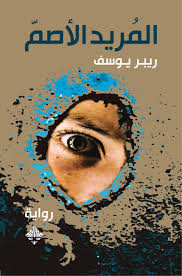What is war without the shouts of demonstrators, the roar of warplanes, and the screams of detainees in torture rooms? How do beings and actions appear without their sounds? What is the need for a doorbell? What is the sound of food cooked in a pot? How can a deaf child-young person digest such a silent, muffled world?
These are some of the questions raised by the book “The Deaf Aspirant,” which describes the image of the world after deleting its audio file, and tells the diaries of a father who raised his deaf son alone.
Relying on various narrative methods, Reber Youssef sheds light on the complex aspects of the fatherhood-childhood duality, including complex feelings, such as: love, hate, fear, and the desire to be free from the burden of this bond between the two, or to defend and strengthen it. It is a book about a father who voluntarily abandons the sounds of the world if they do not reach his son’s ears, and about a son who rediscovers himself to bury his deafness and fear forever.
